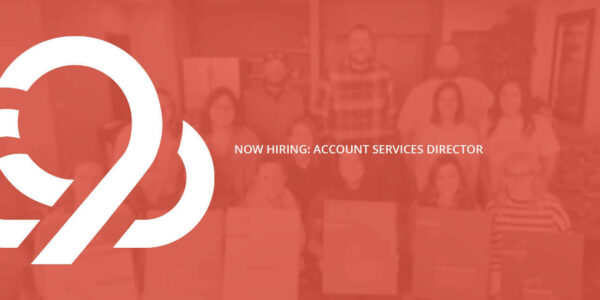
All By My Selves: Why Finding Your Voice Is Critical for Your Social Media Marketing
Are you the person you think you are?
Whether we realize it or not, many of us are living a double life.
No, this doesn’t mean you get to be a secret agent (although if you are, your secret is safe with me). When I say “double life,” I’m referring to our social media profiles.
I’m not accusing anyone of lying outright on their Facebook accounts, but I am stating that nearly all of us use Facebook to convey our “ideal self” instead of our “actual self.”
According to Lyle Ungar of the UPenn World Well-Being Project, most people totally lack the ability to convey who they truly are and what they truly believe on their social media profiles.
If this is the case, then two questions about social media marketing arise:
- How does this apply to businesses that are trying to build trust with their customers?
- How do I get people to talk about my business online?
Ideal Self vs. Actual Self
What’s the difference between your ideal self and your actual self?
Both can be good, and both can be bad. One is who you want to be, and the other is who you really are.
Let’s say you’re a talk-show host with a big following of viewers. You might enjoy activities or hold opinions that seem controversial to other people, but they are no less true to who you are as a person. However, you would never let those qualities surface during a broadcast because you want your viewers to think of you in a certain way.
A famous example of this is the iconic late-night show host David Letterman. A recent feature story in New York Magazine portrays who the man behind the microphone really is — a sharp contrast to the man we watched night after night for over three decades.
In the cover photo, Letterman is rocking a long white beard, sunglasses, and a stocking cap. This new look of somebody’s grandpa who went to Woodstock back in his day is almost unrecognizable compared to the man we watched on TV. However, this is Letterman’s actual self.
It isn’t just his new look that might catch you off guard. The interview itself is raw.
Letterman doesn’t hold back his life stories, grievances, or political opinions. He explains that he used to care so much about how his ratings fared against rival host Jay Leno’s, how they almost consumed him.
In the 33 years when Letterman hosted his major network program Late Night with David Letterman, all eyes were on him. We demanded that his words and actions fit the mold of what we believed a late-night talk show host should express. Letterman complied for the sake of popularity — and for his ideal self.
Facebook and Twitter profiles are like a talk-show stage for our own ideal selves. Like Letterman with his TV ratings, we want approval. Likes, shares, encouraging comments — we can’t get enough of feeling important and accepted by others.
From the photos of people we want to be seen with to the clever statuses we want everyone to read, almost all of our social media presence is riddled with contradictions from who we are behind closed doors.
How To Build Honesty and Trust Online
Does this same social media marketing phenomenon of self apply to businesses, too?
Yes — and that’s okay.
In fact, many businesses embrace the fact that they can create a voice that not only promotes their brand, but also relates to customers. Recently, Wendy’s took to its Twitter account to joke around with its followers and poke fun at other fast-food establishments:
Aside from the pure savagery that Wendy’s laid into its competitors, it accomplished something great: Wendy’s got people talking about its brand.
Wendy’s could end up overwhelming or underwhelming your expectations based on what it tells you online. However, more businesses are realizing the power of communication through social media marketing channels. What better way to improve your business and customer relations than by talking directly with your customers?
The two keys to getting people to talk about your business online are to:
- Have an active presence with your social media marketing.
- Keep an open dialogue between you and your customers.
The Business Advantage Online
The advantage that a business’s social media marketing account has over someone’s personal account is that we tend to celebrate businesses striving toward their ideal selves more than people who try to do the same. The contradiction between a person’s ideal self and their actual self can almost offend us with its inconsistencies.
If you share a photo or article promoting a cause you believe in, there are individuals out there who will judge you, instead of taking the message itself into consideration. They may think that you’re seeking attention or acting “holier than thou” in attempts to get approval.
However, when a pizza place announces online that they’re finally going to start delivering past 10 p.m., every college kid in America feels joy deep in their heart (and stomach).
The downside is that with business accounts — unlike with personal accounts — people are more likely to remind you of who you really are. You’re not a person; you’re a company. Because of this, the average consumer will be less hesitant to point out when you aren’t practicing what you’re preaching.
The open dialogue you keep with your client base is only an asset to you. You find out what your customers value, what they expect from you, and what you can do to make their situation better.
When you take their concerns into account and adjust accordingly, you can achieve the online presence you want.
Make sure to subscribe to our blog in 2017 for more of the latest digital marketing trends, techniques, and insights!





![Human vs AI A/B Test [Spoiler Alert: Humans Win!]](https://9clouds.com/wp-content/uploads/2024/02/Volvo-dealership-1-600x388.png)


